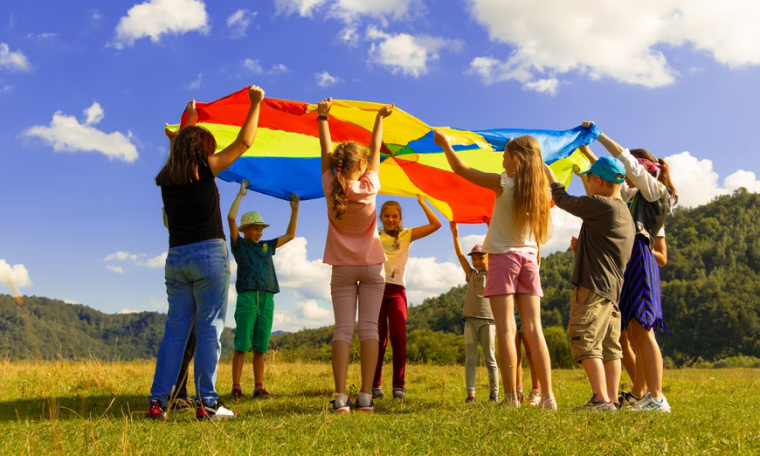
The word “patriotism” came from Greek, which means “land of the father, the ancestor.” Patriotism is pride in people’s material and spiritual achievements. The desire to preserve its characteristics, cultural heritage and the need to protect the interests of his community. The historical source of patriotism is the formation of attachment to the traditions of ancestors and culture.
The role of patriotism has always been an integral part of the educational process in the education system. It acquires particular relevance, new sound, and approaches in today’s conditions. Patriotism begins to form in early childhood. It’s the period of active development of children. Without love for the Motherland, a person can not be a citizen. Readiness to increase wealth, preserve honor and glory, and give life for freedom and independence is a way of patriot behavior.
In early childhood, self-awareness is laid. With traits that will determine the personality, the child can realize himself and the place he is now. At this stage, the development of emotions, feelings, thinking, and social adaptation begins. This period of human life is the most favorable for emotional and psychological impact on the child. The images of reality and cultural space perception are very bright and robust. They remain in the memory for a long time which is very important in patriotism.
Preschool age is a crucial period in the formation of personality and spirituality. During this period, the perception of the world and personality awareness are laid. Bright impressions of the beauty of native nature and the heroic deeds of the people develop children’s love for the homeland.
Student age is when the foundations of a conscious citizen are laid. Patriot is a person with personal qualities, character traits, and worldview. The way of thinking, actions, and behavior aimed at the self-development of a democratic civil society. All these are characteristics of a patriot.
The following aspects should be laid in children and students during the educational process:
- Affirmation and feelings of patriotic values and beliefs. Respect for Motherland’s cultural and historical past. Bringing up children all this is essential when you educate patriotism.
- Education of respect for your country’s Constitution, laws, and state symbols. It’s not so easy to explain the importance of such knowledge to a child, but the study process shouldn’t be tedious. Such materials can be learned while playing.
- Cultivating a respectful attitude to soldiers is also essential for patriots.
- Awareness of the relationship between individual freedom, human rights, and patriotic responsibility. Not every adult can develop such aspects. But it would be easier if the teacher finds a way to interest children in learning this and helps understand its importance.
For example, many educational books and essays on patriotism for children will be interesting. So the teacher can read books, stories, and essays aloud or give such home assignments. It helps to understand the importance of patriotism. Also, this way, students can improve writing skills, so there are many advantages to such activity.
- A tolerant attitude towards other peoples, cultures, and traditions. The establishment of humanistic morality is the fundamental basis of civil society. The formation of speech culture. Cultivation of the best features of the mentality. All these aspects are also essential parts of patriotism.
- Also, students should learn how to oppose immorality, separatism, chauvinism, and fascism.
The educator should care about the enrichment of the child. Knowledge, creative mastering, and the development of children’s feelings are also necessary. Children like to participate in festivals and develop artistic abilities and collective interaction skills at any age. So such events can help to bring up patriotism.
Conclusion
At preschool age, the child is susceptible to emotional influences and prone to imitation. So it’s favorable conditions to reveal the meaning of national and world heritage. It can be done through works of art. Ethics of human relations, the first practical experience of the soul, begins in childhood. History, traditions, and the native language – everything from which the Motherland begins. So it’s vital to have patriotism from a young age. So the child will grow as a human and responsible citizen.



